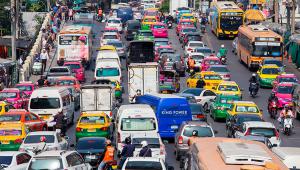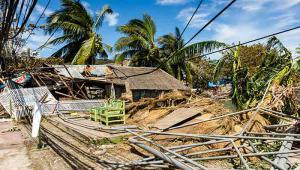Officially recorded remittances to these countries reached $466bn in 2017 – an increase of 8.5% from $429bn in 2016, according to the bank’s latest migration and development brief, which it produces with its initiative the Global Knowledge Partnership on Migration and Development (KNOMAD).
Money sent by migrants to their home states, which include high-income countries, increased 7% to $613bn in 2017, from $573bn the previous year, the World Bank figures showed.
Although remittances are expected to continue to increase this year, there are longer-term risks to growth, including stricter immigration policies in many remittance-source countries, the bank said.
“While remittances are growing, countries, institutions, and development agencies must continue to chip away at high costs of remitting so that families receive more of the money.
“Eliminating exclusivity contracts to improve market competition and introducing more efficient technology are high-priority issues,” said Dilip Ratha, lead author of the World Bank’s brief and head of KNOMAD, a global partnership focusing on migration and development issues.
The brief said the global average cost of sending $200 was 7.1% in the first quarter of 2018, more than twice as high as the sustainable development goal target of 3%.
Sub-Saharan Africa is the most expensive place to send money to, where the average cost is 9.4%.
The World Bank said major barriers to reducing remittance costs are de-risking by banks and exclusive partnerships between national post office systems and money transfer operations.
It said these factors “constrain the introduction of more efficient technologies – such as internet and smartphone apps and the use of cryptocurrency and blockchain – in remittance services”.
The rebound in remittances was helped by higher oil prices and a strengthening of the euro and rouble, the bank said.
Remittance inflows improved in all regions and the top remittance recipients were India with $69bn, followed by China ($64bn), the Philippines ($33bn), Mexico ($31bn), Nigeria ($22bn) and Egypt ($20bn).
The brief said that transit migrants, who only stay temporarily in a transit country, are usually not able to send money home.
“The World Bank Group is mobilising financial resources and knowledge on migration to support migrants and countries with the aim of reducing poverty and sharing prosperity,” said Michal Rutkowski, senior director of the social protection and jobs global practice at the World Bank.
“Our focus is on addressing the fundamental drivers of migration and supporting the migration-related Sustainable Development Goals and the Global Compact on Migration.”
The bank called on multilateral agencies to help by providing data and technical assistance to address adverse drivers of transit migration, as well as development institutions to provide financing solutions to transit countries.













